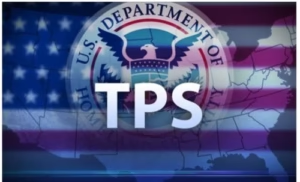The Trump administration has ended Temporary Protected Status (TPS) for approximately 270,000 Venezuelans.
With this decision, Donald Trump’s team has undone humanitarian measures enacted under Joe Biden.
In 2021, under Biden, the White House redesignated TPS for Venezuelans. This allowed them to remain legally in the United States and obtain work permits. The measure protected more than 270,000 migrants from forced return to their country amid a severe crisis.
The Department of Homeland Security (DHS) plans to act quickly. The protection will end within 60 days. Without court intervention, the consequences will be significant. These migrants will lose their legal status. They will be required to comply with federal rules or face arrest and deportation, the government warned.
Before leaving office in 2024, Biden had made a final move in favor of Venezuelans by redesignating TPS. That decision allowed new arrivals to obtain legal status. In total, more than 600,000 Venezuelans could qualify.
The Trump Administration’s Arguments
The DHS defends its position firmly, citing two main points: national security and the control of migration flows.
Matthew Tragesser spoke on the matter. As spokesperson for USCIS, he relayed the words of Kristi Noem. The Secretary of Homeland Security sees a major problem. According to her, TPS creates “a magnet effect.” It draws more “illegal migrants,” CBS News reported.
“Maintaining this program poses a challenge,” he said. “Expanding it for Venezuelans creates even more problems.” According to him, this goes against Trump’s efforts to protect the southern border.
Concerns Raised
Human rights advocates have expressed concern. They fear consequences for families. Venezuela remains in deep crisis, facing major economic challenges and ongoing political problems.
The Trump administration remains firm. It maintains its strict position. This approach reflects its broader immigration policy, which prioritizes border control and national security.
As a result, affected immigrants are urged to act quickly. They are invited to register for the voluntary return program. To facilitate this process, a mobile application, CBP Home, has been made available. In addition, the administration is offering financial assistance. A $1,000 incentive awaits Venezuelans who agree to leave. This offer applies to those who do not wait for judicial proceedings, according to DHS.
The Trump administration had already ended TPS for more than 350,000 recently arrived Venezuelans.
The Supreme Court had ruled in favor of the federal government, thereby ending this protection program for hundreds of thousands of Venezuelans, the majority of whom had entered through the Mexican border. Others had benefited from Biden-era humanitarian programs.
The TPS terminated on Wednesday affects a different group: immigrants who have lived in the United States for a long time. Many have been settled and integrated for years.
Reactions from Advocacy Groups and Legal Experts
The reactions were immediate and strong. Many voices rose against the decision.
Immigrant rights organizations expressed particular concern, calling the measure “brutal.” They argue it endangers well-established families. Many TPS recipients have children born in the United States. These children are U.S. citizens. The risk of family separation is therefore real and concerning, advocates said.
Immigration law experts also raised key points. They emphasized the nature of TPS: temporary but renewable. For them, the Trump administration is taking the wrong course. Successive revocations, they argue, ignore the reality in Venezuela. The situation remains critical. The economic crisis continues, and humanitarian problems persist.
Legal Challenges Expected
Migrant advocates remain firm. For them, these decisions lack objective grounds. They see political motivation rather than an actual analysis of the situation.
TPS has existed since 1990. Congress created it with a specific purpose: to temporarily protect people fleeing serious situations, including natural disasters, wars, or major political crises. Today, however, the White House sees it differently. It criticizes how Democrats have used the program, arguing that repeated renewals have changed its nature. TPS, in their view, has become a pathway to permanent settlement. That perspective justifies, for the current administration, ending the program.
In recent months, the Trump administration has taken strict measures. It has already ended protections for immigrants from several countries, including Haiti, Honduras, and Nepal. Nicaragua, Afghanistan, and Cameroon have also been affected.
Families in Uncertainty
For the Venezuelans affected, the announcement is a shock. Many have lived in the United States for years. They work in essential sectors. Now, they fear losing everything: their jobs and their homes. Above all, some risk being separated from their American-born children.
While awaiting court decisions, these families face a difficult choice. They may accept the voluntary return program offered by DHS or remain undocumented, risking arrest.
It should be noted, however, that the vast majority of Venezuelan TPS beneficiaries had already filed asylum applications, according to data cited by immigration lawyers working in Venezuelan communities.
https://ctninfo.com/?p=36619&preview=true
https://x.com/CtNinfo/status/1963464322882961448
Article based on reporting from CBS News (Camilo Montoya-Galvez)








